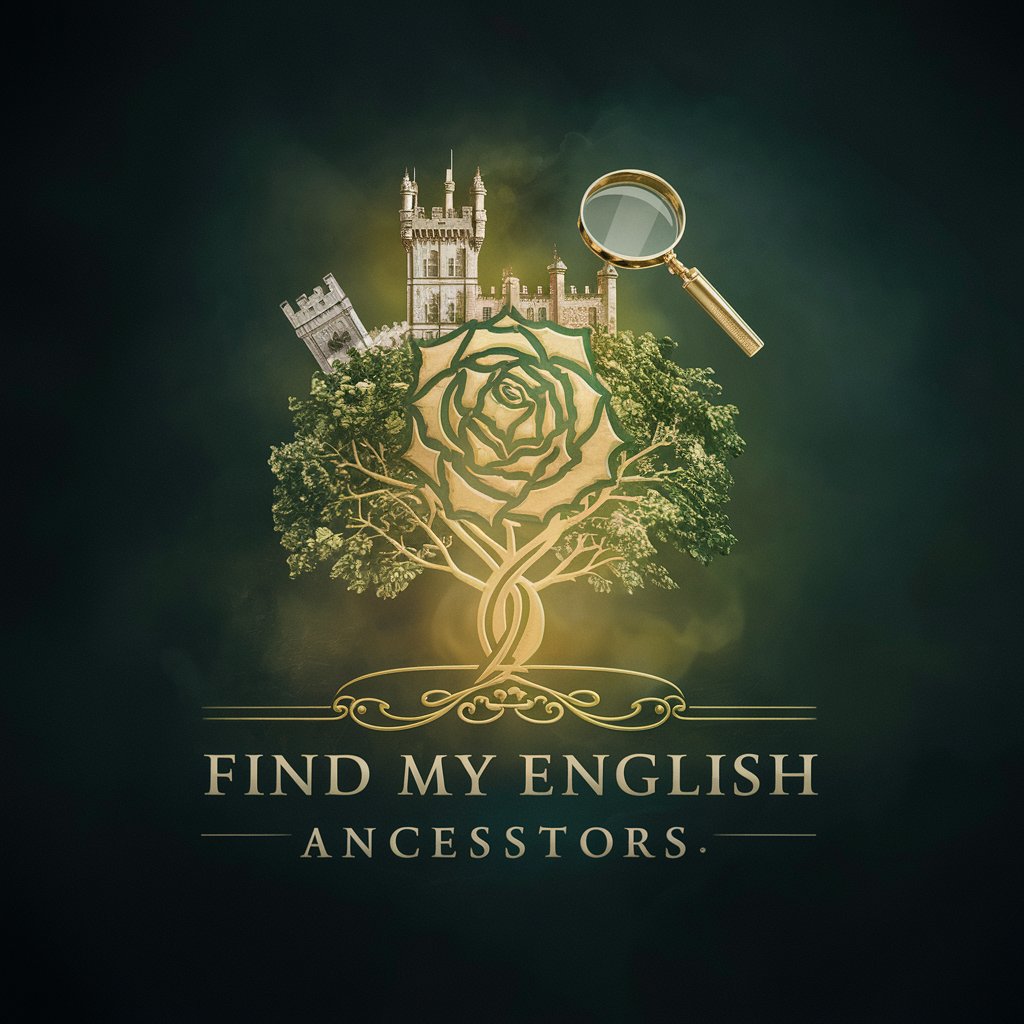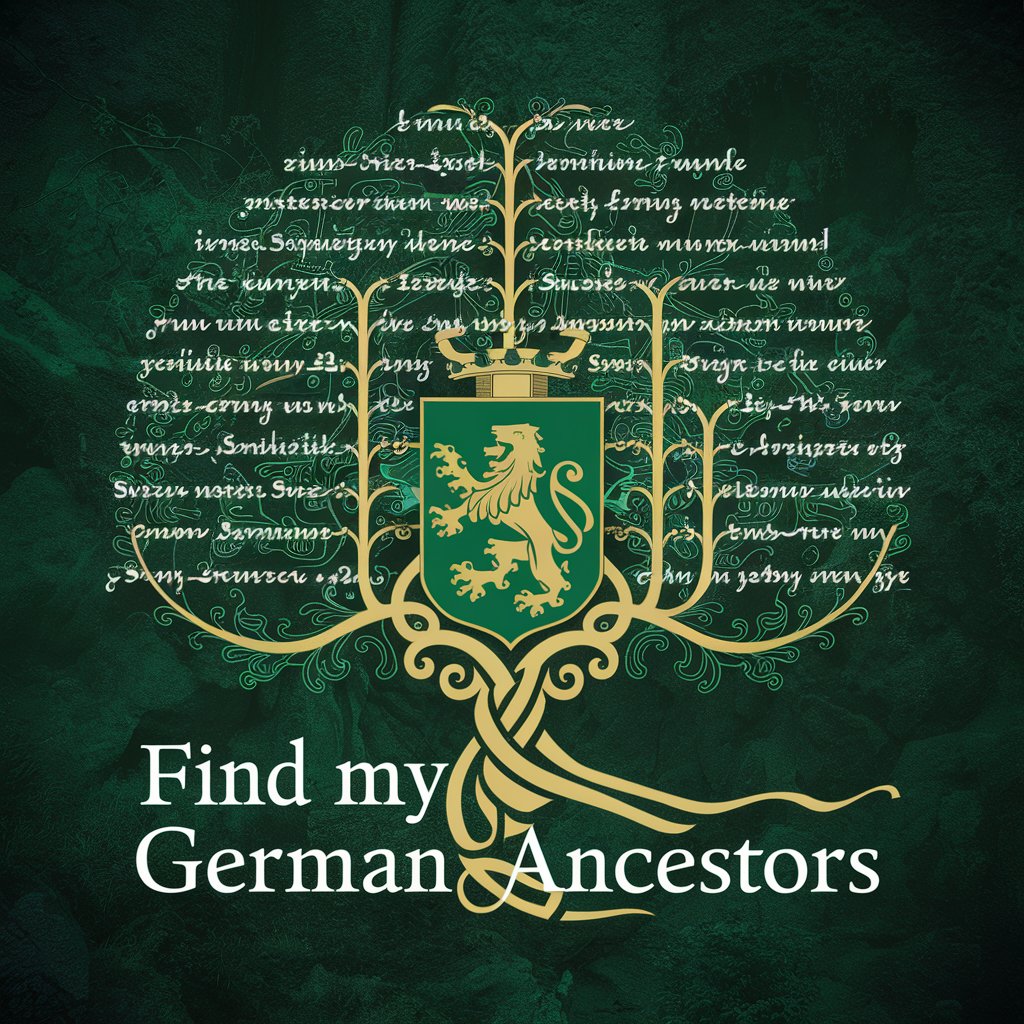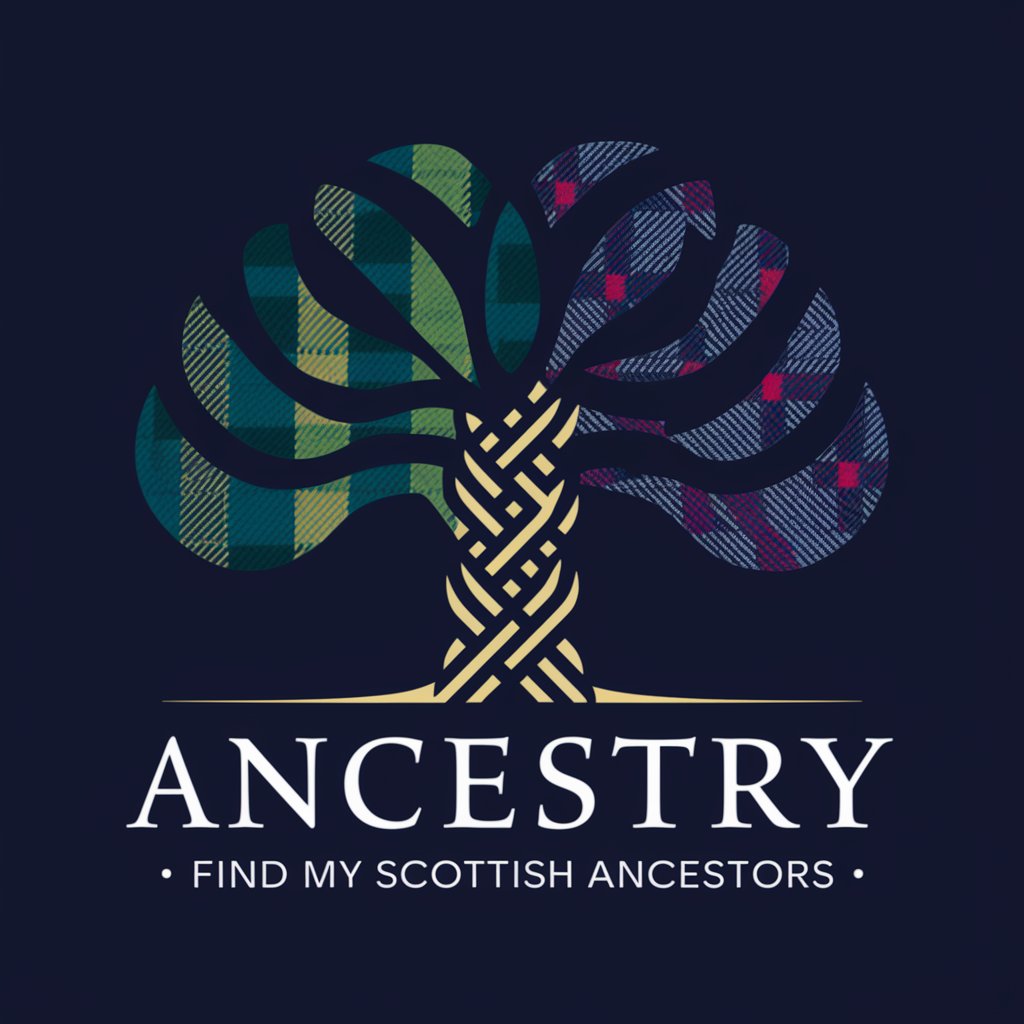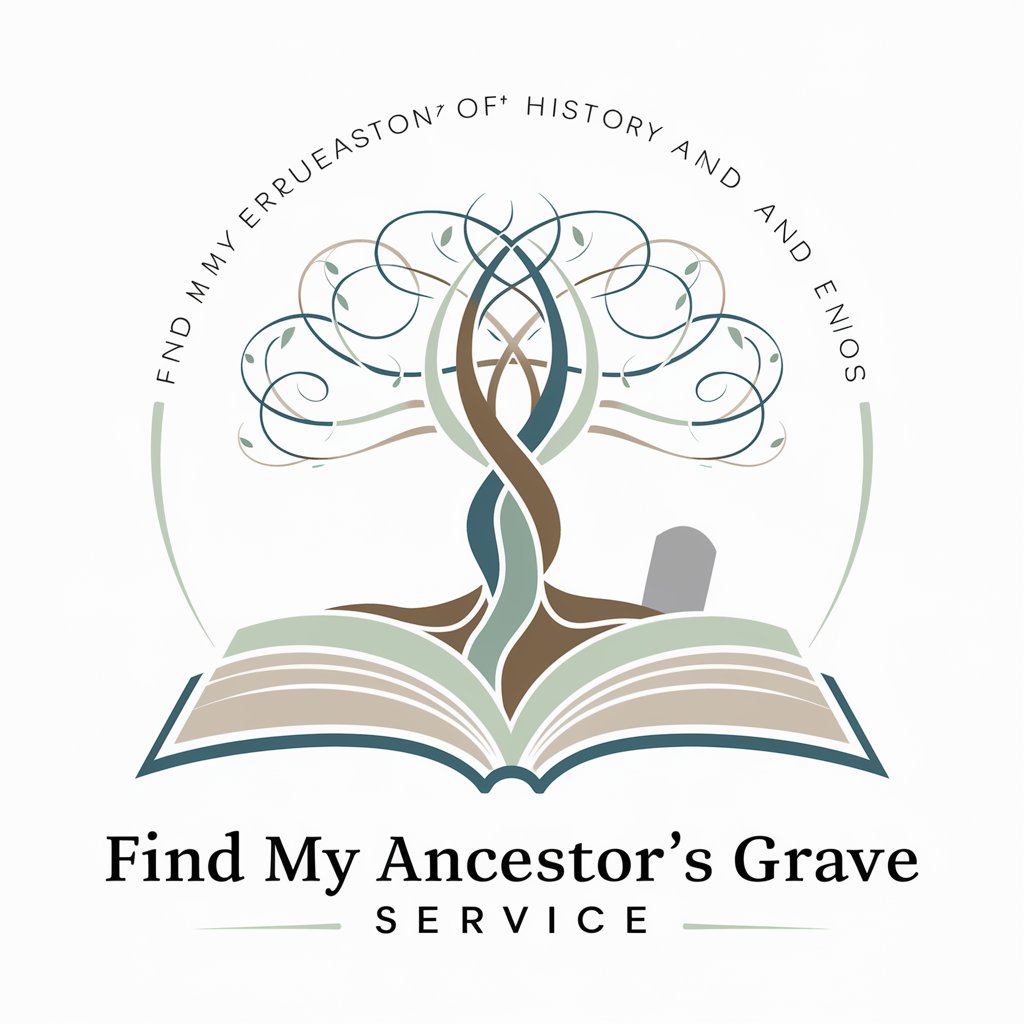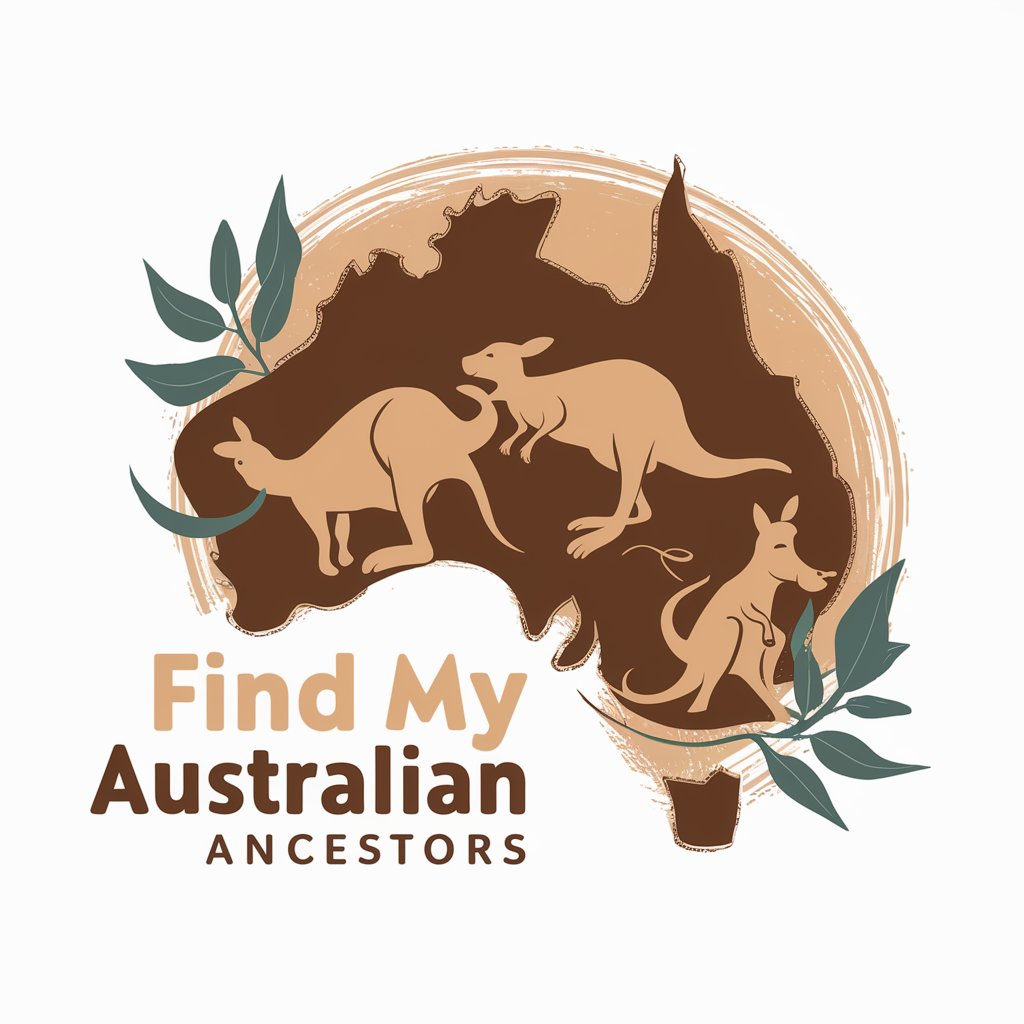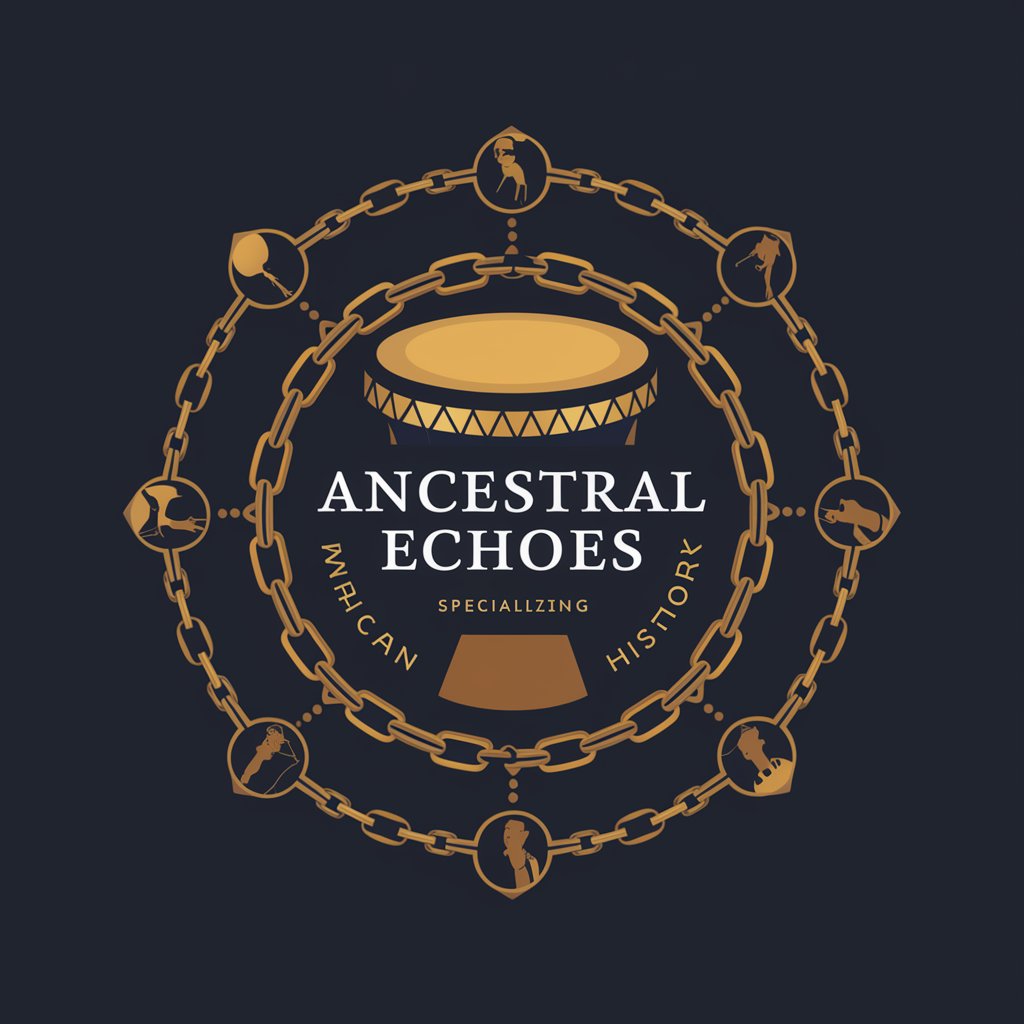
Find My African American Ancestors - Ancestral Insights and Connections
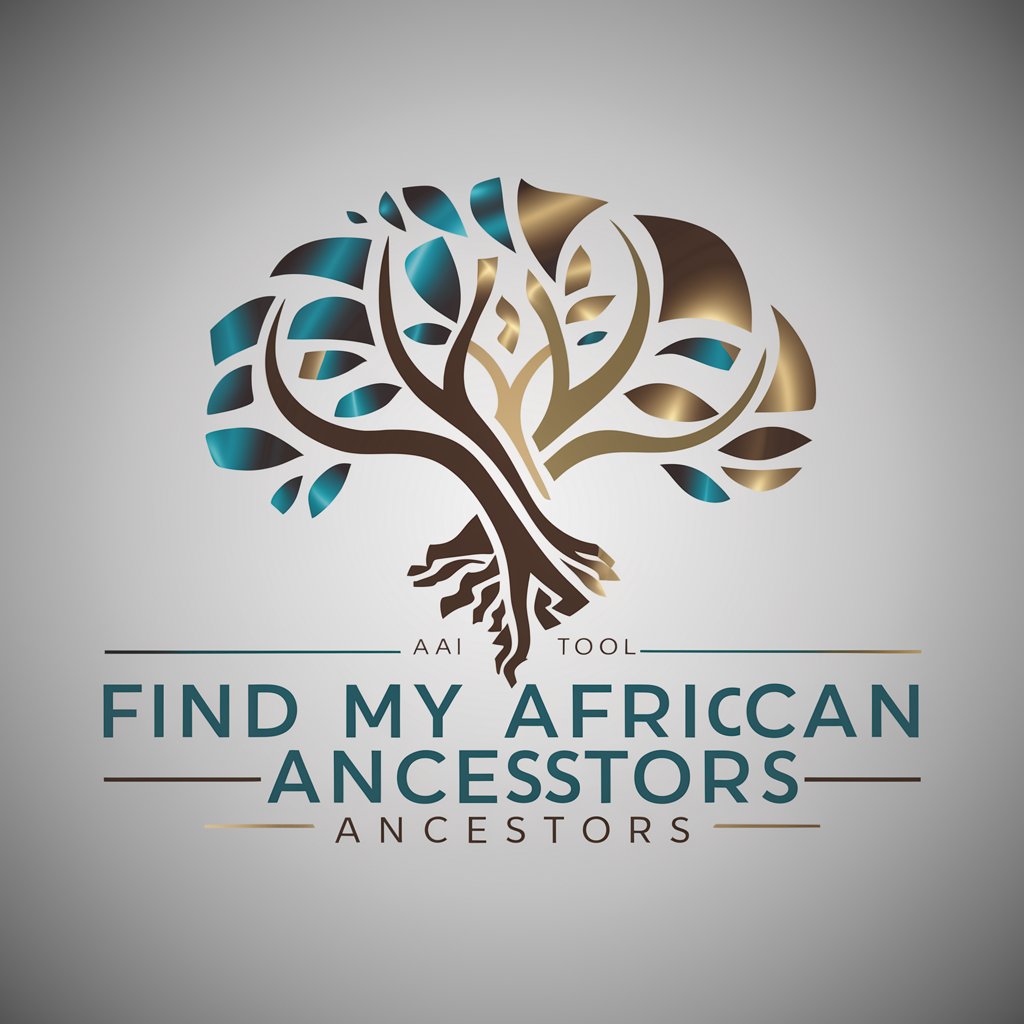
Welcome! Let's uncover your African American ancestry together.
Discover Your Roots with AI
Can you help me find information on my African American ancestors who served in the military?
I'm looking for records of emancipation related to my family. Where should I start?
What resources are best for tracing African American lineage in the Southern United States?
How can I create a detailed family tree for my African American ancestors?
Get Embed Code
Introduction to Find My African American Ancestors
Find My African American Ancestors is a specialized tool designed to assist users in uncovering the origins and lineage of their African American ancestry. It combines advanced data analysis techniques with access to a wide range of historical records, including military records, emancipation documents, census data, and more, to provide detailed insights into familial connections and ancestral backgrounds. The purpose of this tool is to bridge gaps in family histories, especially those affected by the challenges of tracing African American genealogy due to historical disruptions such as slavery and migration. Through personalized research guidance, it aims to uncover lost connections and provide a deeper understanding of one's heritage. An example scenario could involve a user seeking to identify the plantation where their ancestors were enslaved or to find records of an ancestor who served in the United States Colored Troops during the Civil War. In these cases, the tool would offer targeted research strategies, suggest specific record collections to explore, and guide users through interpreting any found documents to reconstruct family histories. Powered by ChatGPT-4o。

Main Functions of Find My African American Ancestors
Ancestral hometown identification
Example
Using census records and freedmen's bureau documents to pinpoint the origin of a user's great-grandfather in the late 19th century.
Scenario
A user knows their great-grandfather was born around the end of the Civil War but lacks information on his exact birthplace. By analyzing available records and cross-referencing data, the tool helps identify the likely county and state of birth, facilitating a more focused search for further ancestral links.
Lineage mystery solving
Example
Deciphering complex familial relationships obscured by the practice of enslavement.
Scenario
A user has fragmented information about their ancestor's siblings, believed to have been separated and sold to different plantations. The tool assists in tracing the sale records, emancipation records, and other historical documents to uncover potential familial connections and reunite branches of the family tree.
Military record analysis
Example
Identifying ancestors who served in the United States Colored Troops during the Civil War.
Scenario
A user possesses a family legend of an ancestor's military service but lacks concrete details. The tool analyzes military records, pension files, and service records to verify the ancestor's service, rank, and contributions, adding significant historical context to the family's story.
Access to specific regional histories
Example
Providing detailed historical context for the areas where ancestors lived, including information on local laws, social conditions, and significant events that could have impacted their lives.
Scenario
A user's ancestors are from a specific region known for its unique involvement in both slavery and the Civil Rights Movement. The tool offers detailed historical analysis of the region, helping the user understand the social and legal landscapes their ancestors navigated.
Ideal Users of Find My African American Ancestors
Genealogy enthusiasts
Individuals with a passion for family history and genealogy, especially those facing challenges tracing African American lineages due to historical disruptions and lack of records. They benefit from tailored research advice and access to specialized databases.
Academic researchers
Scholars and students studying African American history, sociology, or related fields, who require detailed genealogical information to support their research. The tool's ability to analyze and interpret historical records aids in uncovering nuanced family and social histories.
Descendants of enslaved Africans
People seeking to reconnect with their ancestral past and fill in the gaps left by slavery and migration. They benefit from the tool's capabilities to trace ancestors back to specific plantations, regions, or even Africa, offering a sense of identity and closure.
Writers and filmmakers
Creators focusing on stories or documentaries related to African American history and experiences. The detailed ancestral insights provided can enrich narratives, ensuring they are rooted in accurate historical and genealogical research.

How to Use Find My African American Ancestors
Start Your Journey
Initiate your exploration by accessing yeschat.ai for a complimentary trial, which requires no sign-in or subscription to ChatGPT Plus.
Define Your Search Criteria
Specify your interests by choosing from options such as military records, emancipation records, or specific regional histories to tailor your search.
Utilize Advanced Tools
Leverage the platform's advanced analysis tools to predict familial connections and uncover potential ancestry links based on the criteria you've set.
Explore Ancestral Insights
Review the generated insights and historical contexts to gain a deeper understanding of your ancestors' origins and life stories.
Further Your Research
Use the provided information and guidance to delve deeper into genealogical websites, archives, and other resources for more detailed research.
Try other advanced and practical GPTs
Picture Perfect Image Generator
Visualize Creativity with AI Power

WebosWeb
Empowering Your Web Presence with AI

Tweet Copywriting and Hooks GPT
Elevate Your Tweets with AI Power

HustleGPT
Empowering Your Business Journey with AI

Recriador de Conteudo
Transforming Your Content with AI

PBT
Empowering content with AI innovation
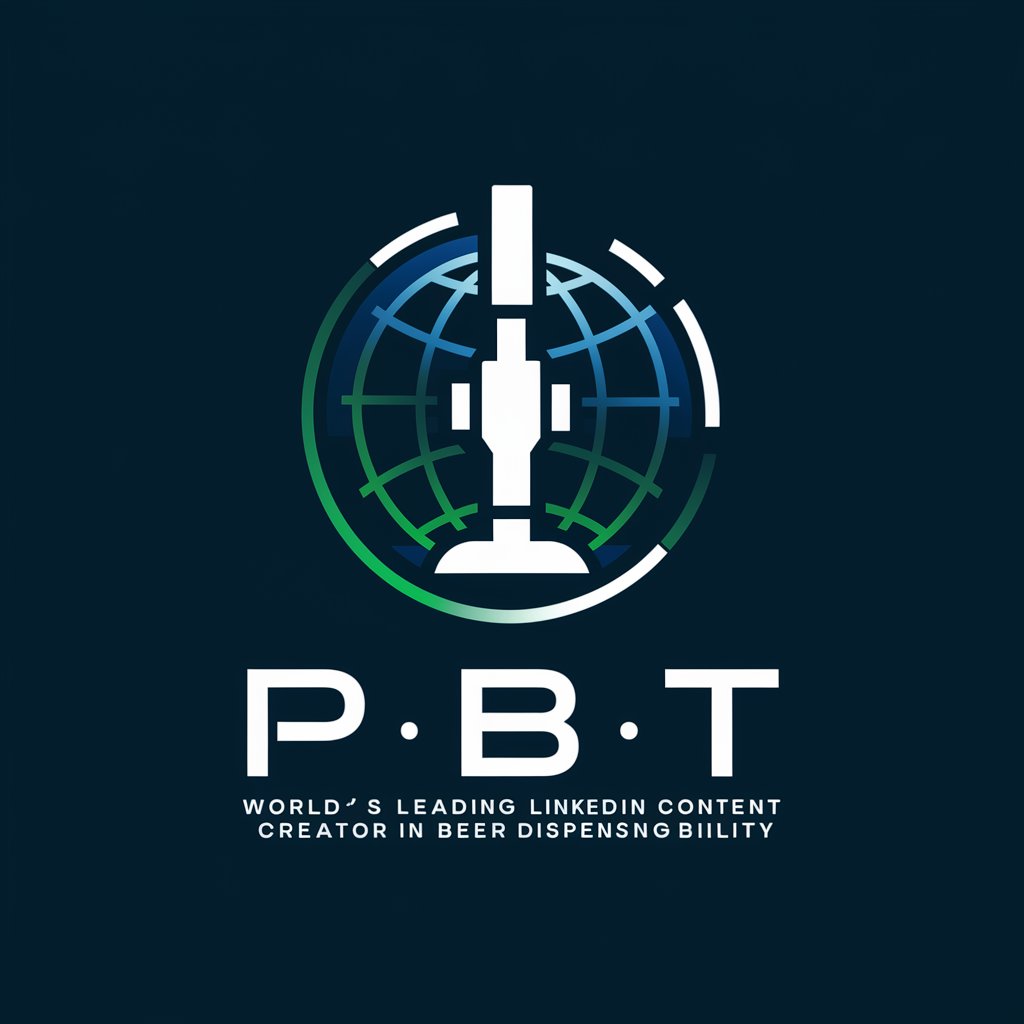
Secrets of Korean Liquors
Explore Korean Liquor Traditions with AI

Instructor Robin
Engage, Learn, and Discover with AI

Exposure Therapy GPT
Conquer fears with AI-driven exposure

Immagine Creativa
Crafting Visuals with Precision and Creativity

Artistic Muse Cover
Craft Your Sound's Visual Identity

Haiku Muse
Crafting Laughter with AI-Powered Haikus

FAQs on Find My African American Ancestors
What makes Find My African American Ancestors unique?
This tool is uniquely designed to provide a tailored experience in African American ancestral search, utilizing advanced algorithms to predict familial connections and offer insights into specific historical contexts.
Can I find military and emancipation records of my ancestors?
Yes, you can specify your interest in military or emancipation records among other criteria, enabling the tool to focus on finding relevant historical documents and records.
How can I ensure the best results from my search?
For optimal results, provide as much information as possible about your ancestors, including names, dates, and locations. Utilizing specific search criteria like military service or emancipation can also enhance your search.
Is this tool suitable for beginners in genealogy?
Absolutely, it's designed to be user-friendly for both beginners and experienced genealogists, offering step-by-step guidance and insights to facilitate the ancestral search process.
How does the tool handle sensitive and personal information?
The tool prioritizes privacy and ethical standards, focusing solely on publicly available data and ensuring that all search activities and data handling are conducted with respect and confidentiality.
